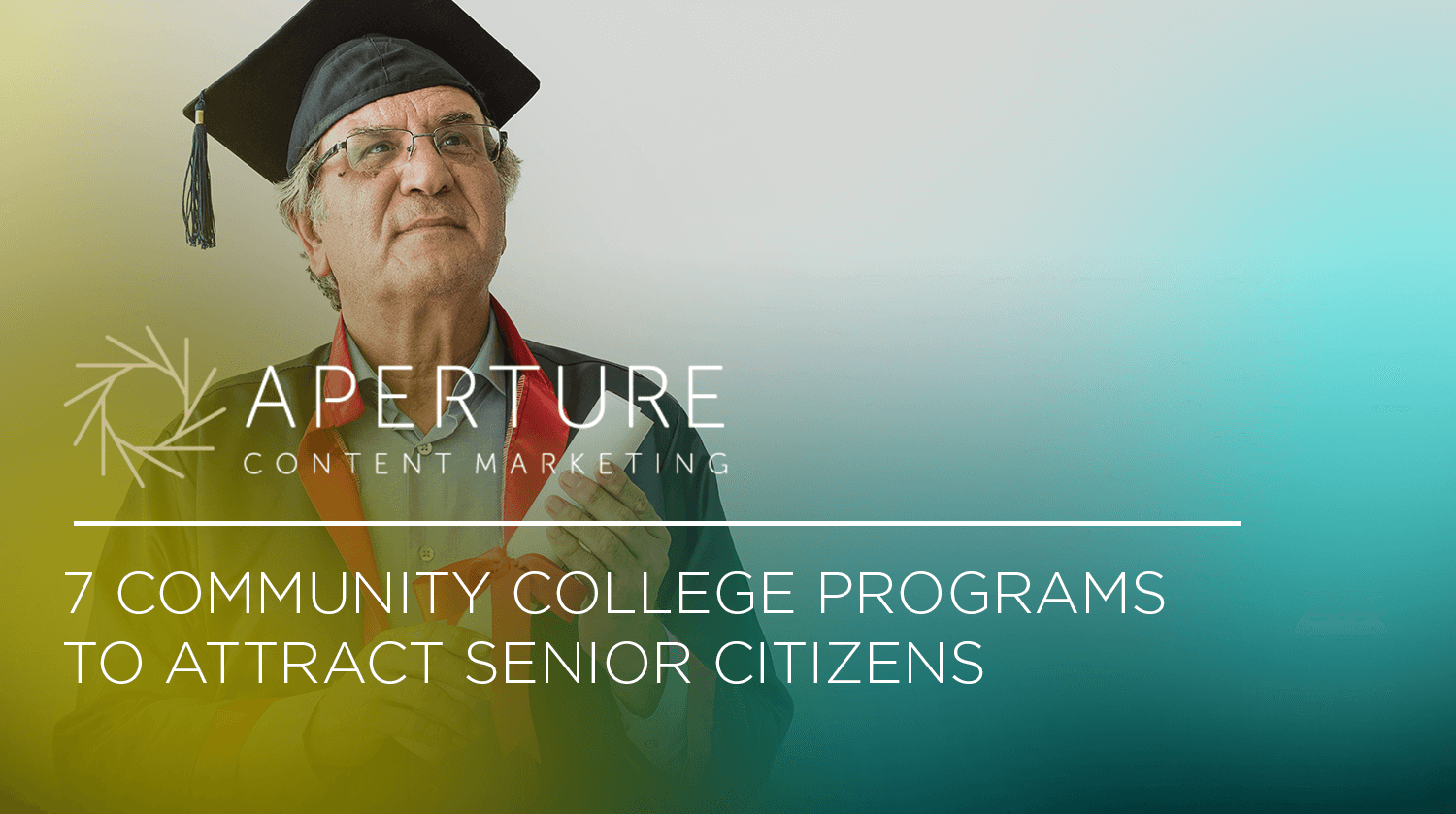Engage senior citizens with high-quality programs designed to meet their needs and interests.
Community colleges are designed to serve everyone in their community. Unfortunately, many members of their target demographic perceive them as being primarily for younger students—those who have recently graduated high school or who are at the start of their careers. Because of this perception, many community colleges struggle to draw attention to programs designed to benefit the wider range of citizens. Without awareness of these programs, community colleges risk losing support for services that would otherwise be doing a great deal of good.
Senior citizens are a prime example of this challenge. Not only do they form a crucial constituency, they are also ideal students. With years of experience to bring to the table, as well as greater free time and more flexible schedules, they have both the motivation and the opportunity to excel at their goals and add value to their classmates.
However, to reach this demographic, community colleges must dedicate some of their marketing resources to promoting programs that have proven to be attractive to senior citizens, such as the following.
1. Cultural enrichment programs.
While community colleges are most frequently associated with trade programs, they also offer a range of cultural and humanities programs from music appreciation and theater to history and language classes. For senior citizens who have devoted a career to specializing in one subject, culture and humanities programs are a chance to explore new interests.
2. Financial planning during retirement.
The transition to a fixed income can be difficult adjustment for many senior citizens. Financial miss-steps in the early years of retirement can have a significant impact on quality of life decisions a decade down the road, when other living costs are likely to go up. Retirement planning courses can help seniors avoid some of the most common pitfalls so that they have the freedom to enjoy their retirement fully.
3. Health and fitness for senior citizens.
As many senior citizens are aware, steps they take to improve their health and fitness sooner will have greater ongoing benefits than changes to their exercise habits even a few years down the road. At the same time, senior citizens must be careful not to engage in exercises that have a higher risk for injury, as they will struggle to recover more than in previous years. Fitness courses designed specifically for senior citizens can help prevent injury and improve their overall health for many years.
4. Community initiatives.
Seniors looking for new ways to become involved with their community naturally turn to the community college as a source of information. Many community colleges act as an organizational hub both for their own programs, and larger community initiatives. Sharing information about these programs with seniors can help them discover more about subjects they care passionately about, while also providing them with the information and resources they need to become involved.
5. Mentorship opportunities.
With a career’s worth of experience under their belts, many seniors are eager to share their knowledge with younger students who are just starting out. Mentorship programs don’t just improve learning outcomes for students, they are also rewarding and stimulating for the mentors themselves. Community colleges offer an excellent space for those at the beginning of a career to learn practical advice from seasoned professionals, while also helping senior citizens stay engaged in a professional world which played such an important part in their lives for so many years.
6. Arts and skilled crafts.
Many senior citizens entering retirement take this as an ideal time to learn a new hobby. This provides both a creative outlet and a natural opportunity to create social connections. Courses on painting, baking, woodworking, photography, and gardening receive steady interest from seniors, and ongoing programs that allow for repeat enrollment create a regular environment for seniors to build their skills.
7. Computer skills.
Many senior citizens have spent the bulk of their careers working in an office environment where basic computer skills were a daily job requirement. However, the senior citizen demographic still lags behind younger generations in technological proficiency. To their credit, many seniors are aware of this gap in their skill set, and are eager to remedy it. Computer courses that help seniors improve their typing, navigate the Internet, and address common technology concerns help seniors to work past a knowledge gap that could limit them in an increasingly technology-centered world.
For senior citizens, lifelong learning isn’t just a buzz word—it’s an aspiration.
Increasingly, senior citizens are viewing their retirement years less as a time of quiet withdrawal, and more as an opportunity for increased engagement and activism. This mindset sees finds its natural outlet in lifelong learning—the belief that continuing education has value for everyone, no matter their stage of life.
There’s no better place for them to connect with those around them than at their community college. Reaching these key learners should be a key focus for community college marketers as they look for ways to grow their footprint within their community.
We’ve recently worked with a San Jacinto College in Pasadena, Texas to help them reach senior citizens in their community with a regular publication, SeniorFocus, that directly addresses their interests. We encourage you to read more about SeniorFocus to learn about the ways their community college is engaging with this important demographic.


